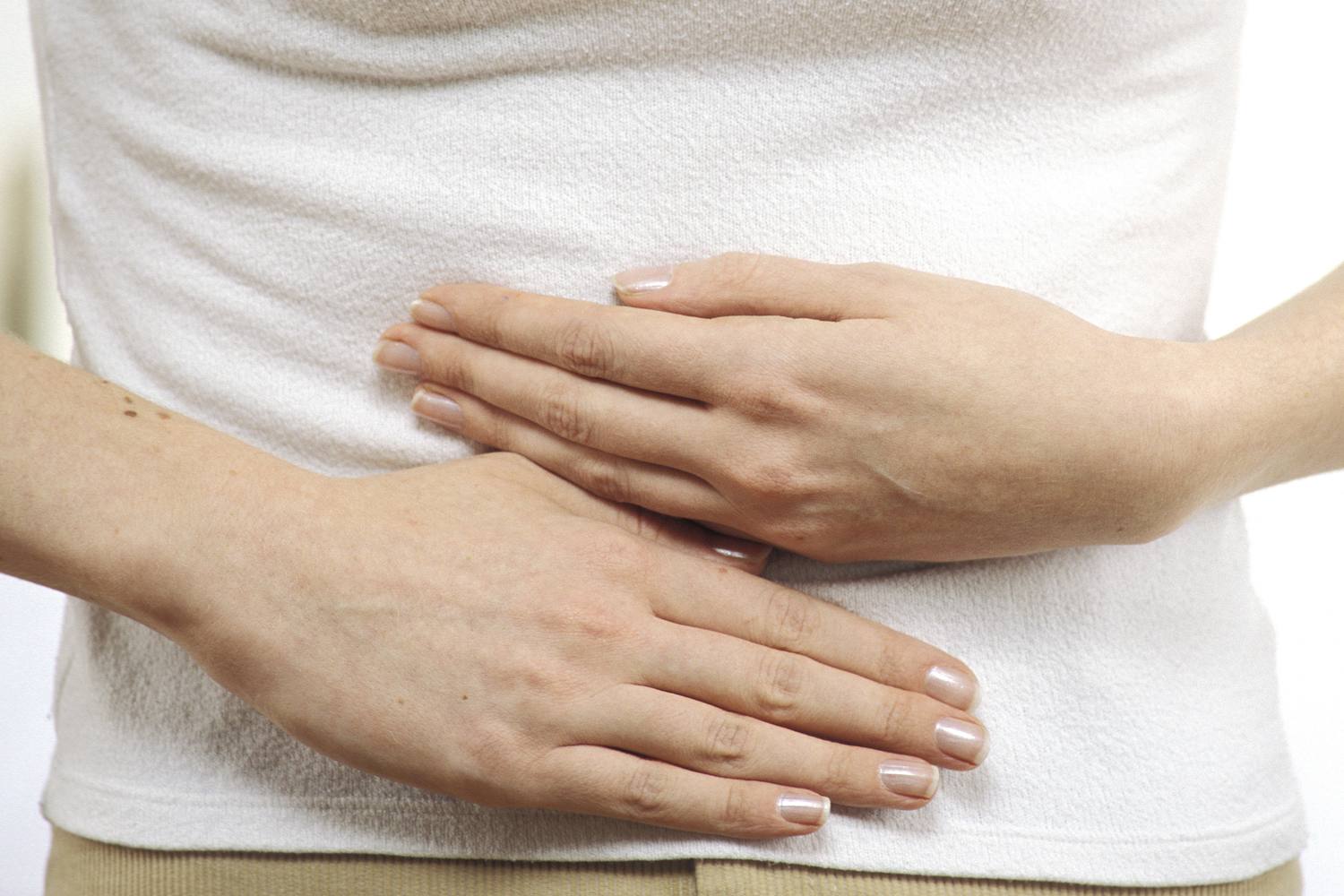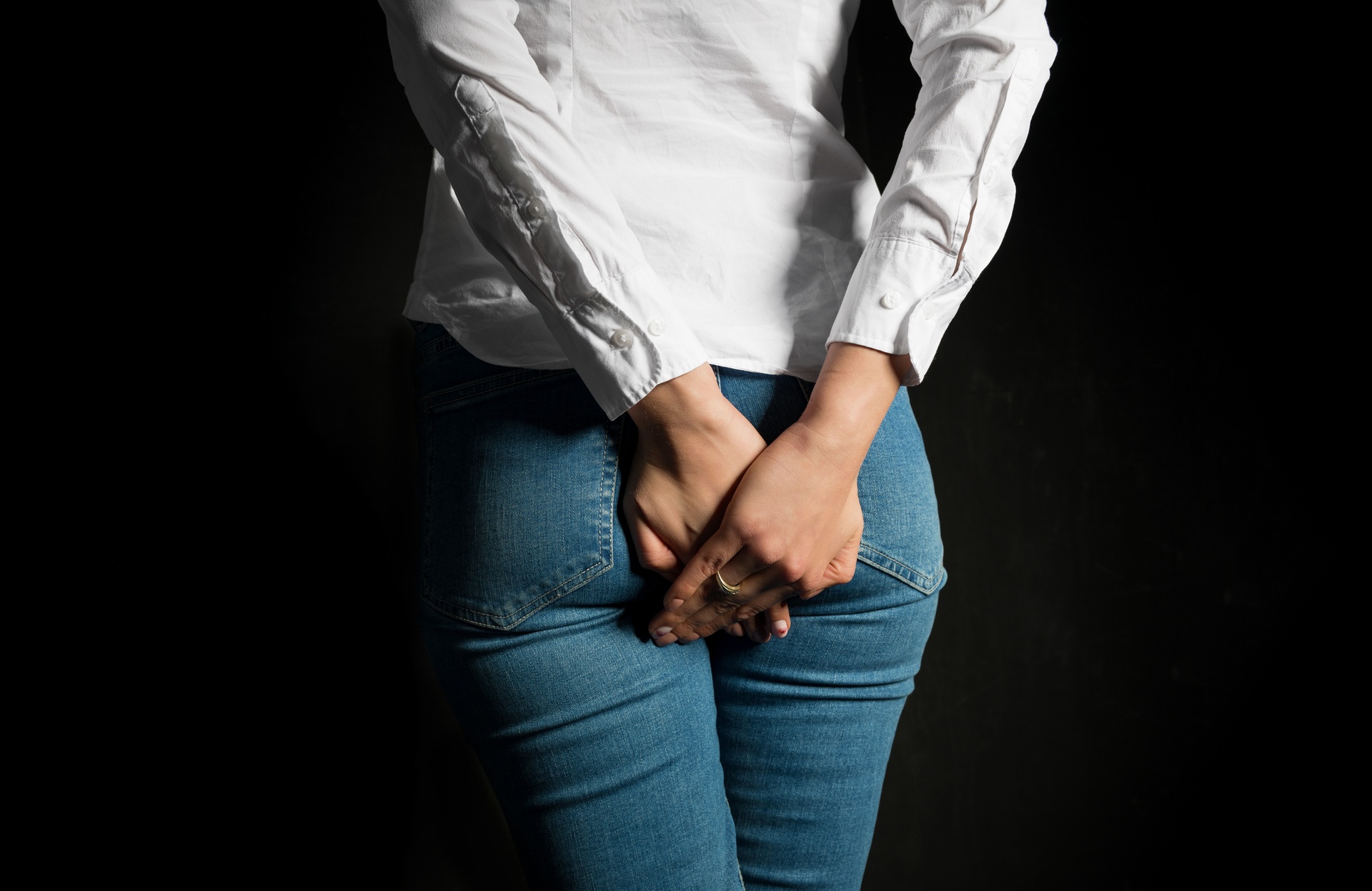

FAQs
Why Does My Fart Feel Stuck
Modified: September 23, 2023
Find answers to your general questions about why your fart might feel stuck. Discover common causes and learn how to relieve discomfort.
(Many of the links in this article redirect to a specific reviewed product. Your purchase of these products through affiliate links helps to generate commission for Under-tec.com, at no extra cost. Learn more)
Table of Contents
Introduction
Flatulence, or the passing of gas, is a natural and common bodily function that everyone experiences. While it may be an embarrassing topic to discuss, it is essential to understand and address any discomfort related to gas and its passage. One common concern that many people have is the sensation of a “stuck” fart.
It can be quite distressing to have the feeling that a fart is trapped or unable to pass through the rectum. This sensation can cause discomfort, bloating, and even pain in some cases. Understanding the reasons behind a stuck fart and learning how to alleviate it can bring significant relief and improve overall well-being.
In this article, we will delve into the various factors that contribute to a fart feeling stuck. We will explore the potential causes, such as diet and lifestyle choices, as well as underlying medical conditions. Furthermore, we will discuss the remedies and strategies one can employ to relieve a stuck fart and restore comfort.
It is important to note that everyone’s body is unique and may react differently to certain foods or situations. Thus, the information provided in this article is intended as a general guide, and it is recommended to consult with a healthcare professional for a personalized assessment and advice.
Understanding Flatulence
Before we delve into why a fart may feel stuck, let’s first understand the nature of flatulence. Flatulence is the release of gas that builds up in the gastrointestinal tract. This gas is a byproduct of digestion and is made up of various gases, including nitrogen, oxygen, carbon dioxide, methane, and hydrogen.
Gas can enter the digestive system from several sources. It may be swallowed when eating or drinking quickly or when consuming carbonated beverages. In addition, gases can be produced during the breakdown of food by bacteria in the large intestine.
On average, a person passes gas between 13 and 21 times a day. The frequency and volume of flatulence can vary depending on factors such as diet, lifestyle, and overall health.
When a fart is released, it typically travels through the rectum and out of the body without any issues. However, there are instances when the passage of gas may feel obstructed or “stuck.” This sensation can be attributed to a variety of factors, which we will explore further in the following sections.
It is essential to distinguish between a normal fart and the feeling of a stuck fart. While occasional episodes of trapped gas are usually harmless, persistent or severe cases may indicate an underlying issue that requires medical attention.
Now that we have a basic understanding of flatulence, let us continue by examining the potential causes of a fart feeling stuck.
Causes of a “Stuck” Fart
Experiencing a sensation of a “stuck” fart can be uncomfortable and perplexing. Several factors can contribute to this feeling:
- Gas Trapped in the Intestines: One of the most common causes of a stuck fart is excessive gas accumulating in the intestines. This can happen due to the consumption of gas-producing foods, such as beans, lentils, carbonated drinks, and certain vegetables.
- Dietary Factors: Certain dietary choices can also contribute to a feeling of a stuck fart. Consumption of high-fat foods, spicy foods, and foods high in fiber can affect digestion and promote the buildup of gas in the intestines.
- Intestinal Obstruction: In some cases, a physical obstruction in the gastrointestinal tract can prevent the passage of gas. This obstruction can be caused by conditions like bowel strictures, tumors, or impacted stool.
- Weak Anal Sphincter Muscles: The anal sphincter muscles play a crucial role in controlling the passage of gas. If these muscles are weakened or impaired, it can lead to difficulty in releasing gas and contribute to the feeling of a stuck fart.
- Intestinal Motility Issues: Problems with intestinal motility, such as slowed or irregular bowel movements, can result in gas getting trapped in the intestines. Conditions like irritable bowel syndrome (IBS) or gastrointestinal disorders can affect the normal movement of gas through the digestive system.
It is worth noting that certain lifestyle factors, such as sedentary behavior and poor posture, can also contribute to the buildup and retention of gas in the intestines, exacerbating the sensation of a stuck fart.
Understanding the root causes of a stuck fart is crucial for determining the appropriate remedies. In the next section, we will explore factors that can affect fart passage and discuss strategies to relieve this discomfort.
Factors Affecting Fart Passage
Several factors can impact the passage of fart and contribute to the feeling of it being stuck. Let’s take a closer look at these factors:
- Dietary Habits: The foods we consume play a significant role in the production and passage of gas. Certain gas-producing foods like beans, lentils, broccoli, onions, and carbonated drinks can lead to increased gas production and potentially hinder fart passage.
- Gastrointestinal Health: Digestive health issues can affect how gas moves through the digestive system. Conditions such as irritable bowel syndrome (IBS), inflammatory bowel disease (IBD), or gastrointestinal infections can disrupt the normal flow of gas and contribute to a feeling of a stuck fart.
- Intestinal Motility: Proper intestinal motility is essential for the timely movement of gas through the digestive tract. When the muscles in the intestines do not contract efficiently, gas can accumulate and result in the sensation of a stuck fart.
- Anal Sphincter Function: The muscles in the anal sphincter play a crucial role in controlling the release of gas. Weak or impaired sphincter muscles can hinder the passage of fart and contribute to the feeling of it being stuck.
- Posture and Body Position: The way we sit or stand can affect the movement of gas in the intestines. Poor posture or sitting for extended periods without movement can lead to gas becoming trapped and causing discomfort.
- Stress and Anxiety: Emotional factors like stress and anxiety can also influence the movement of gas in the digestive system. When we are stressed, our body’s natural digestion process may be disrupted, leading to gas buildup and a sensation of a stuck fart.
It’s important to note that everyone’s body is unique, and individuals may have different sensitivities to certain foods or conditions that impact fart passage. Identifying the specific factors that contribute to the feeling of a stuck fart can be helpful in finding appropriate remedies.
In the next section, we will explore some remedies and strategies that can help relieve a stuck fart and improve overall comfort.
Remedies for a Stuck Fart
Experiencing a stuck fart can be uncomfortable and distressing, but there are several remedies and strategies that can help alleviate the discomfort. Here are some options to consider:
- Change Your Position: Sometimes, a simple change in body position can help release trapped gas. Try standing up, sitting on a toilet, or lying down on your side to encourage the passage of gas.
- Gentle Exercise: Engaging in light physical activity, such as walking or cycling, can stimulate the movement of gas through the digestive system and promote fart passage.
- Apply Heat: Applying a heating pad or warm compress to the abdomen can help relax the muscles and relieve any discomfort from trapped gas. Heat can also stimulate bowel movement and aid in the release of a stuck fart.
- Massage: Gently massaging the abdomen in a circular motion can help stimulate digestion, relieve gas buildup, and encourage the movement of gas through the intestines.
- Try Simethicone: Simethicone is an over-the-counter medication that can help break down gas bubbles in the digestive system, making it easier to pass gas and alleviate the feeling of a stuck fart.
- Make Dietary Adjustments: Identify any specific foods that contribute to excessive gas production and consider reducing or eliminating them from your diet. Additionally, incorporating more fiber gradually and staying hydrated can help regulate digestion and prevent gas buildup.
- Manage Stress: Since stress and anxiety can impact digestion and contribute to a stuck fart, finding effective stress-management techniques like relaxation exercises, deep breathing, or engaging in hobbies can help alleviate symptoms.
It is important to note that if you experience persistent or severe symptoms related to trapped gas or if these remedies do not provide relief, it is advisable to consult a healthcare professional for further evaluation and guidance.
By implementing these remedies and making lifestyle adjustments, you can reduce the discomfort associated with a stuck fart and improve your overall digestive well-being.
When to Seek Medical Attention
In most cases, a stuck fart can be relieved through simple remedies and lifestyle adjustments. However, there are instances where seeking medical attention is necessary. If you experience any of the following symptoms, it is recommended to consult with a healthcare professional:
- Persistent or Severe Pain: If you are experiencing intense or prolonged abdominal pain, it could be a sign of a more serious underlying condition, such as an intestinal obstruction or bowel obstruction. Prompt medical evaluation is needed in such cases.
- Chronic Digestive Issues: If you consistently struggle with digestive symptoms like bloating, excess gas, diarrhea, or constipation, it may indicate an underlying gastrointestinal disorder that requires medical diagnosis and treatment.
- Changes in Bowel Habits: If you notice significant changes in your bowel movements, such as ongoing diarrhea or constipation, blood in your stool, or unexplained weight loss, it is essential to seek medical attention for proper evaluation and diagnosis.
- Sudden Onset and Intensity: If you experience a sudden, severe onset of abdominal pain accompanied by vomiting, fever, or inability to pass gas or stool, it may be a sign of a medical emergency, and immediate medical attention should be sought.
- Worsening Symptoms: If your symptoms persist or worsen over time, it is advisable to consult a healthcare professional for a thorough evaluation. They can help identify any underlying causes and provide appropriate treatment.
Remember, it is always better to err on the side of caution when it comes to your health. If you are uncertain or concerned about your symptoms, it is best to consult a healthcare professional for proper medical advice and guidance.
In the next section, we will wrap up with a brief summary of the key points discussed in this article.
Conclusion
Experiencing a stuck fart can be uncomfortable and distressing, but it is a common issue that many people face. Understanding the causes of a stuck fart, such as dietary choices, intestinal obstruction, weak anal sphincter muscles, or intestinal motility issues, can help in finding the appropriate remedies.
By making simple lifestyle adjustments like changing body positions, engaging in gentle exercise, applying heat, and trying over-the-counter medications like simethicone, you can alleviate the discomfort and promote the passage of trapped gas. Additionally, managing stress, making dietary adjustments, and seeking medical attention when necessary are crucial steps in maintaining optimal digestive health.
However, if your symptoms persist, worsen, or are accompanied by severe pain, chronic digestive issues, changes in bowel habits, or sudden intense symptoms, it is important to seek medical attention for proper evaluation and treatment.
Remember, everyone’s body is unique, and what works for one person may not work for another. It is essential to listen to your body, make informed choices, and consult with a healthcare professional for personalized advice.
By taking proactive measures and addressing the underlying causes, you can find relief from a stuck fart and improve your overall digestive well-being. Don’t let a stuck fart keep you uncomfortable. Take charge of your health and enjoy optimal digestion.










